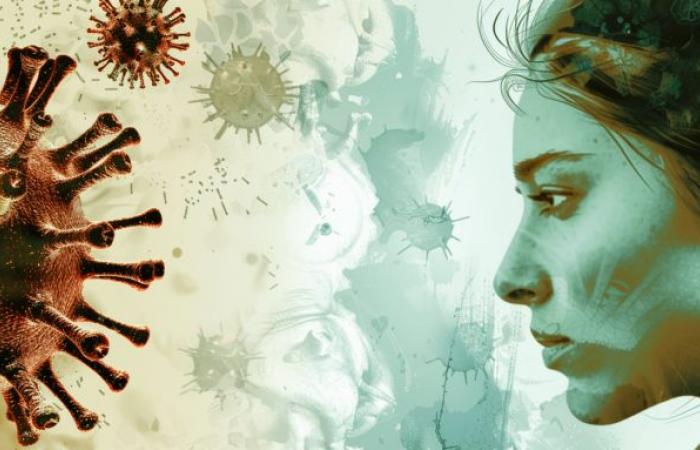6 out of 10 French people say they are more concerned about Covid-19. This is the first lesson revealed by the results of the barometer relating to the perception and behavior of the French regarding the epidemic, conducted by IPSOS for Pfizer France.
The work, carried out on a sample of 2,500 people, shows consistent figures in all regions, including among people at risk.
However, the latest bulletin from Public Health France still noted an increase in all virus indicators compared to the previous week (+0.9% in SOS doctors medical acts, +0.1% in visits to emergency rooms, and +0.3% in hospitalizations after visits to emergency rooms).
Trivialization of serious forms
More than one in two French people consider it useless to get tested when the first symptoms appear and more than 4 in 10 French people even consider that the epidemic is over, according to the same studies. An identical trend among people at risk.
“The trend was already observed last year”analyzes Bruno Valtier, medical director of the vaccines division at Pfizer France. “The French want to turn the page and this is generally true across all regions”.
But the northeastern regions go even further, with 33% of people at risk considering that the epidemic is over and that we should even stop talking about it.
And this tendency to trivialize the epidemic also concerns serious forms of the virus. Around 7 out of 10 people at risk think they have little chance of being hospitalized for serious illness. However, between October and March 2023, nearly 700 cases of Covid were reported by intensive care units.
Release of good reflexes
As a result of this trivialization of the epidemic, the application of barrier gestures and the good reflexes to adopt are also decreasing.
Thus, only 6% of respondents systematically take a screening test before seeing a person at risk, and only 16% wear a mask in their presence.
Conversely, people at risk themselves are less vigilant about these actions, since only 10% of them ask their loved ones to respect them.
This relaxation of good reflexes is also visible in the event of symptoms, since 77% choose to wait and observe developments instead of taking a screening test. Identical figures among people at risk.
However, if 80% of those questioned would recommend that their fragile loved one consult in the event of symptoms, fewer would take this step themselves. Thus, only 52% would notify their GP, and 60% those around them.
https://www.whatsupdoc-lemag.fr/article/covid-un-nouveau-vaccin-biontech-pfizer-sort-en-plein-rebond-epidemique
However, in view of the international deadlines this summer, good practices in terms of screening must return, Pfizer recalls in its press release. “That’s the whole point of the vaccination campaign launched by the Government in April »for those over 80 and for fragile people, explains Bruno Valtier, who concludes that in the event of symptoms and if the test is positive, there is no hesitation: “contact a healthcare professional”.






